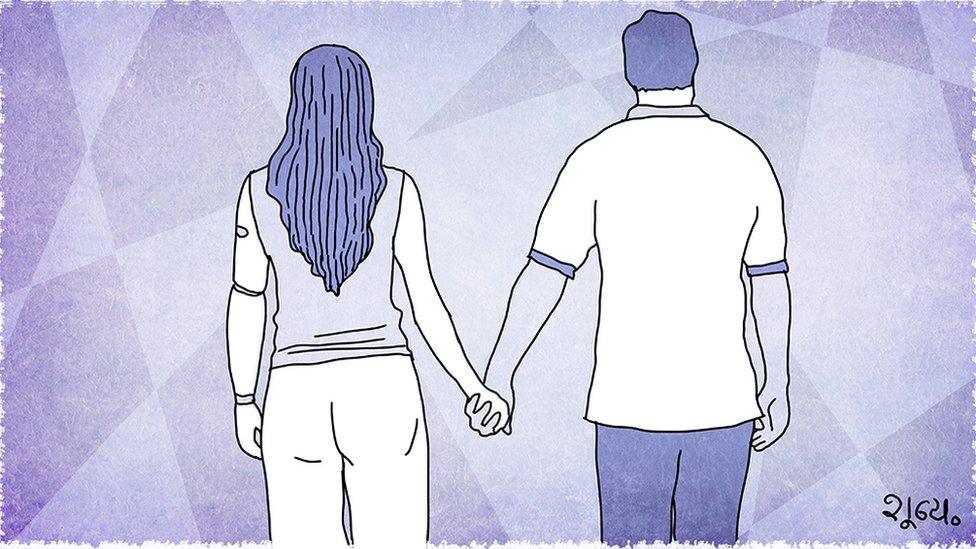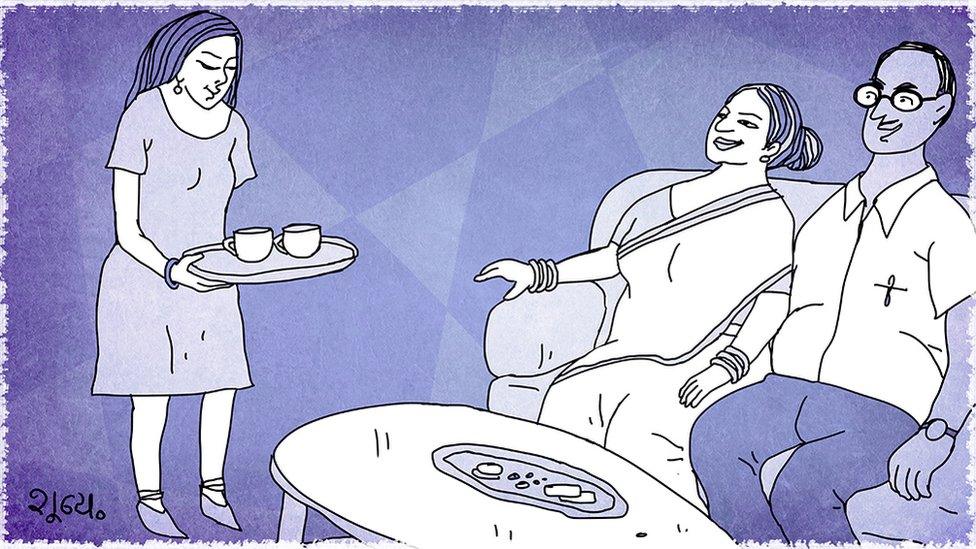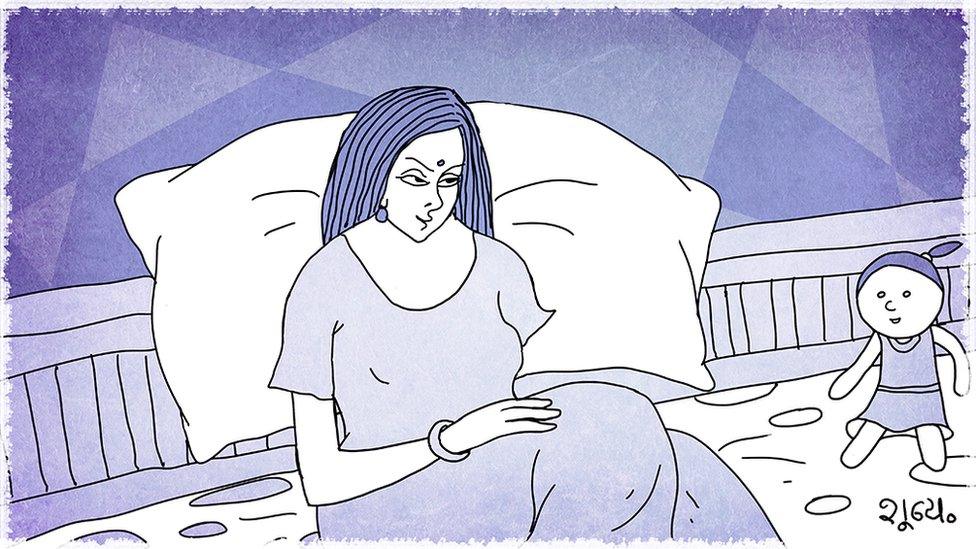100 Women: 'As a disabled woman I had to battle to get married'
- Published

Sometimes he'd even forget that I only had one arm. He was an able-bodied person, a complete man - he could get any girl.
But he was with me. It had been a year since we started living together under one roof without getting married.
The decision to stay together while unmarried was not an easy one.
It started after I created my profile on a matrimonial site to alleviate my mother's concern about my marriage.
I had turned 26 and my mother thought it was time.
My left arm had got cut off in an accident when I was a child, so I understood her anxiety about my marriage.
One day, I got a request on the matrimonial site. The man was an engineer by profession. He was Bengali too, just like me, though from a different city.
But I was unable to decide anything. So I wrote back that I was not ready for marriage.
"Even so, we can talk," came the reply.

#HerChoice is a series of true life-stories of 12 Indian women. These accounts challenge and broaden the idea of the "modern Indian woman" - her life choices, aspirations, priorities and desires.

I used to live in a flat with two friends. They worried he might be a fraud, who might leave after using me. I'd had two bad relationships and knew what I didn't want in the next one.
I wasn't ready for a new relationship, but I also didn't want to live my life alone. That's why I continued to talk to him and saved his name as "Timepass" in my mobile.
One day, we decided to meet.
I had already told him that I had only one arm, yet I was scared of his reaction.
We talked while strolling by the roadside and discovered many common interests. Slowly, we became friends.
He was a quiet person and he had his own ways of taking care of me. He would always make sure that I got home safely.
I didn't know if I would be a good wife but he definitely had all the qualities of a good husband.
Once when I fell sick he bought medicines and even spoon-fed me. That was the first time he took me in his arms. That was an amazing day.
A few months later, my flatmates got married. It was difficult for me to pay the rent for the flat alone.
Around the same time, a room adjacent to my boyfriend's flat became vacant. I moved in there. It allowed us to pretend that we were not living together, though we were.

When my mother came to visit me, she probably realised that we were together.
We got to know each other more intimately. All the fears related to my disability dissipated as I showed him I could do housework work effortlessly.
We knew that a live-in relationship wasn't only about fulfilling sexual desire; it meant sharing one's whole life.
It is a promise of togetherness and acceptance of each other. Perhaps this is the reason our courts have also recognised it.
He didn't know how to cook and neither did I. But, gradually I learned everything.
All those doubts that I had about myself fell away. I realised that even though I wasn't a romantic, I was capable of becoming a good wife.

He understood this as well but in his family's eyes I was less able than an ordinary woman.
He was an only child. When he told them about me, his mother said, "It's OK to be friends with such a girl but forget about marriage."
Ever since I lost my arm, I have been under pressure to prove that I can do any physical task just like any other able-bodied girl.
Eventually his family saw that I was able to do all the household chores expected from a wife. Whether it was cutting vegetables, cooking, changing bed sheets, washing dishes or cleaning the house, I could do everything with one hand.
His parents realised my disability wouldn't limit me.
Today, after a year of being married, our love has only sweetened. My disability has not become a stumbling block of our relationship.
Now I wonder if I'll be able to take care of a child. And the answer to this also lies within.
When I am able to trust myself, then those living around me will also believe in my ability to be a mother.
This is a true life-story of a woman who lives in Northern India as told to BBC reporter Inderjeet Kaur, produced by Divya Arya. The woman's identity has been kept anonymous on request.


What is 100 Women?
BBC 100 Women names 100 influential and inspirational women around the world every year and shares their stories. Find us on Facebook, external, Instagram, external and Twitter, external and use #100Women
Other stories you might like:
I divorced my husband because he couldn't satisfy me